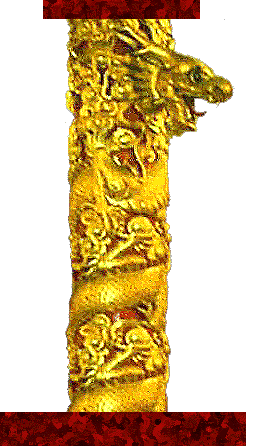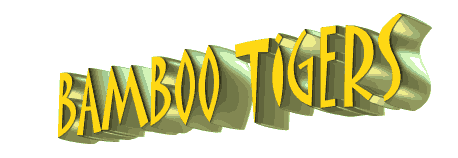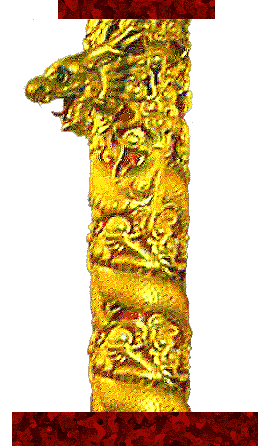| |
The success of the fireworks sales calls into play an interesting extortion operation traditionally carried out by the reigning street masters of Chinatown. In 1977, as it had been for several years, that role was filled by the Wah Ching Gang and its semi-brotherly Hop Sing Boys. In exchange for protection of the Ping Boys and safe-housing of large quantities of the stock, the gang co-operative collected a sizable percentage of the take.
How much money was funneled into Wah Ching pockets? This may never be known, but enough stuck to the fingers of one Ping Boy a few years ago, after a mere two weeks of sales, for him to treat a gang (literally) of young cronies to an all-expenses-paid week in Southern California's Disneyland. That included two-way transportation between San Francisco and what is known in Northern California as "down South."
Allowing the kids to perform as on-street sales personnel on controlled turf and demanding a lion's share of the profits in exchange for the privilege is a masterful tactic of mulcting employed by older gangs. This averts the danger of adult prosecution for themselves if any of the more youthful offenders are caught.
This is time-honored procedure. The dirtier the crime, especially homicide, the more likely it will be to discover that the perpetrator or perpetrators are safely underage. Older planners or instigators will remain obscured by the shadow of indirect connection, as well as by the wall of silence.
Thus is propounded the gang philosophy that serving time under the wing of the California Youth Authority is more agreeable than a sentence as adults to state or federal prison. Anyone would have to agree with that. Star status among wayward boys is better than bottom billing among men in the big time. Aside from which, a juvenile police record is less conspicuous in later life than an adult booking. Such an idea was not original with the Wah Ching. It derived from a principle instilled in them by savvy elders in certain Tongs.
A classic case in point is the murder of William Hoo, 35, in midsummer of 1973. That case, like so many others, is still "open" in police files and must therefore be discussed with discretion.
Willie Hoo owned the Triple City Bar and Nightclub on Kearny Street near Jackson in Chinatown. He was Tong-connected and was known as a backer of the Yao Lai Gang, part of which later re-grouped as Joe Fong's Chung Ching Yee. One night he strolled home for dinner in the company of his daughter, age 10, and his son, two years younger. The head of the little family was accosted in an alleyway by two youths. After an exchange of angry words, one of the two aimed a pistol at Hoo, but the weapon jammed, so the other resorted to a second weapon and shot the intended victim. Hoo fell dead on the spot. The presence of his children had made no difference to the assailants, who were themselves not far beyond the girl and boy in years.
Although the difficult case was ably handled by Inspectors Frank McCoy and Ed Erdelatz of the Homicide Detail, it was Tim Simmons who uncovered the names of the two suspects during an interview in an unrelated case more than a year afterward. He relayed the information to McCoy and Erdelatz who acted upon it at once.
In a resultant photo lineup, Hoo's daughter identified one of the perpetrators, Michael Ng, a teen-ager whose brother David's name had by then also cropped up in the 1974 kidnap-murder of Lincoln Louie. So had the name of Hoo's actual killer, but he was, for various reasons, to remain officially unidentified in the Hoo shooting. The little girl specified that it had been Michael whose gun refused to fire.
A warrant was issued for Michael's arrest. He was found in Hawaii where he resided with his father who had moved there after David Ng's involvement in the Lincoln Louie case. Michael waived extradition proceedings, and McCoy and Erdelatz flew over and brought him back to San Francisco. Through negotiations with his defense counsel, the boy was allowed to plead guilty as an accessory to murder. He never made a statement about what had occurred in the William Hoo homicide. He was sentenced to the California Youth Authority. That was to be the only prosecution in the Hoo affair.
Further investigation revealed that there were five conspirators in the Hoo homicide, including a Tong elder. Three separate meetings had been held to devise a plan to kill Hoo. For two reasons he had been marked for death. Firstly, he was a backer of the Yao Lai, of which Joe Fong was marked for leadership, and one of the conspirators had personal reasons for seeking revenge against anyone close to Joe Fong. Secondly, Hoo had unwisely set out to get revenge on a San Francisco Tong which he felt had treated him shabbily.
One or more of the less legally vulnerable conspirators, meaning the youngest, followed Willie Hoo on several occasions after he closed the Triple City Bar in order to study his pattern of behavior. Once that was established, a third and last meeting took place at the Kuo Wah Restaurant on Jackson Street. Hoo's fate was decreed there.
The two handpicked assassins waited for Hoo in the alleyway leading to his house. Callously undiscouraged by the presence of the little girl and boy, the teen-agers went for broke. After the shooting, Michael, by his own testimony, fled to the apartment on California Street he shared with his father and brother, but the unnamed killer sought refuge in a safe house out of town until it all blew over. That boy, whose pistol had not jammed as Michael's did, would not surface again in police files until his more visible involvement in the next year's Lincoln Louie case.
For one reason or another, the Hoo investigation never quite got off the ground with regard to the other conspirators, despite much hard work on the part of Inspectors McCoy and Erdelatz and those like Simmons who lent a hand. Privately, even the identity of the Tong elder and the probability that Hoo was murdered in fulfillment of a contract put out by a Tong were uncovered. It might have proved to be the one case in which police could finally link a major Tong to a gangland killing, but at that point the wall of silence could not be hurdled.
So it was nothing new for a collective of street urchins to hustle in behalf of the slightly older and more formally organized youth gangs. Nor was it unusual for the Ping Yuen housing project to harbor the half-pint fireworks salesmen. Ping Yuen had long served as fireworks headquarters. Although illegal, such sales provided a source of enormous income to the gangs, useful for such other criminal purposes as the purchase of sophisticated weaponry.
Each spring, shipments of fireworks are made available to the Ping Boys by furtive prearrangement with their Caucasian suppliers. The preliminary deals often take place in cars parked at night in areas like the Marina Green, a park alongside the Yacht Harbor offering a spectacular view of the Golden Gate Bridge to daytime sunbathers and kite-flyers. Many of the subsequent deliveries are cached in safe houses supplied by the Wah Ching or other Ping friends, but others find their way into Ping Yuen itself. The boys break old padlocks on empty storage rooms located in the maze of corridors and replace them with new ones to which only they have keys.
Business gets brisk in May when regular customers from the past, primarily Caucasians from outlying districts of the city or from as far away as down the Peninsula or Marin County or across the Bay, arrive at Ping Yuen to place advance orders for large amounts of stock to be picked up from carefully selected secret warehouses. The month of June traditionally marks a period of great demand for fireworks sold off the street. The diminutive hustlers multiply throughout Chinatown as the weeks march toward July.
The bicentennial celebrations of 1976 proved bullish for the fireworks trade. Enormous profits helped increase the inventory the following year. Nineteen seventy-seven turned out to be another banner season. Then came closing day, the 4th of July. There would be no further demand until '78.
In the early evening of the 4th, when no more customers were expected to show, the Ping Boys stacked the cash for distribution. They posted look-see boys in the streets outside in case the cops should seize this golden opportunity to crash in and sweep them out to the Juvenile Authority. The kids were kings in the counting house, making ready to pay off their debtors after the holiday and to fulfill their own dreams of new cars, new clothes, and new ways to spend the funds before them.
Ping Yuen was their fortress, lapped on all sides by a sea of good fortune. But on that Glorious Fourth in 1977, a pirate crew was secretly making its way toward the Ping Boys' golden shore.
The Joe Boys, long jealous of the Wah Ching's lucrative fireworks control, had dispatched a contingent of swashbucklers bent on looting the treasure trove in the palace of Ping Yuen. They were determined to seize the fireworks profits before the salesmen turned over huge sums of cash to the Wah Ching.
Yet, for seasoned buccaneers, the Joe Boys were about to make three heretical and tragic mistakes unheard of in the days of the Spanish Main.
In the first place, the landing party cast anchor too far from the objective. Gangster tradition requires an idling car outside for a quick getaway, but gangsters in Chinatown encounter the same problem as everyone else, especially on weekends and holidays: no place to park, often not even space to double-park. Quick getaway? In Chinatown on such occasions, two feet are always faster than four wheels. The Joe Boys settled for parking berths almost two blocks away!
Secondly, they were underarmed. No self-respecting 16th-century sea-dogs storming a fortified city on the Caribbean coast would have done so without a plenteous arsenal at hand. Obviously, the Joe Boys expected half-hearted resistance from smallfry awaiting the arrival of the protective Wah Ching fleet.
Lastly, the invaders, having launched themselves into the waves of holiday celebrants too far from shore, ran the risk of early discovery. Real privateers never struck a pirate ship's false colors and raised the skull-and-crossbones until that action's surprise effect could throw an unsuspecting garrison into fatal confusion. The Joe Boys might as well have shouted battle cries while they made their way, like disinterested sharks, through the shoal of look-see Ping Boys scouting for cops. Premature sightings of the well-known freebooters pressed some of the kids to sound the alarm inside Ping Yuen and hastened others to get professional help.
Around the corner on Grant stood the Sun Sing Theater, a hangout for the Wah Ching and the Hop Sing Boys. The Ping Boys' full-alert somehow rippled through the rows of the crowded cinema and set a horde of gang kids in motion toward the street outside and Ping Yuen beyond.
A knowledgeable few wasted no time racing out to Grant and thence toward Pacific Avenue for a confrontation with the enemy on front lines. These chose a flanking movement through a narrow walkway outside the theater's fire exits and over a fence into a Ping Yuen courtyard.
Brandishing pistols rather than swords and muskets of old, the palace's relief forces set off fireworks of their own. Pocket artillery blasted both inside and outside Ping Yuen as the belligerents engaged each other in no less than five gun battles during the next 20 minutes.
Shortly after the first volley was fired, a 22-year-old Chinese, a Muni bus washer, stumbled into Central Police Station three blocks away and told Officer Hart that he had just been shot in the leg by a group of five Chinese boys on Pacific Avenue. About 10 minutes later, at approximately 9 P.M., an unidentified caller reported by telephone that a shooting was in progress at Ping Yuen.
By the time Officer Hart responded to the scene, the smoke had cleared. He found a Chinese youth clad in a beige windbreaker, a multi-colored shirt, tan pants, white tennis shoes and sox, lying face down in front of an elevator at the western end of the project. Two bullet wounds gaped in the boy's back. Hart found the flesh warm to the touch, but the eyes were already glazed by death. No weapon was found at the scene--and no combatants, either.
The kid's pockets bulged with cash.
So died a member of the pirate crew. The funeral of 16-year-old Felix Huey was held at the Cathay Mortuary a few days afterward, but--although many of his companion Joe Boys were in attendance, as shown in photographs taken secretly by police staked out in a house across the street--there was no sounding of taps for a fallen comrade. The bitterness of defeat that cast a pall over the hearts of the gang guys would find other means of expression.
Whichever of the Asian gangs is responsible for any such operation in San Francisco--Joe Boys, Wah Ching, Kit Jai, Hop Sing Boys, Ping Boys--the methods are always the same. The types of kids are the same. The goals are the same. No matter how horrendous the crime, its perpetrators, whether Chinese youth gangsters in San Francisco, Seattle, Hong Kong, Taipei, Amsterdam, London, or New York, are no worse than the peers who, for once, are innocent of the deed.
| |
|









